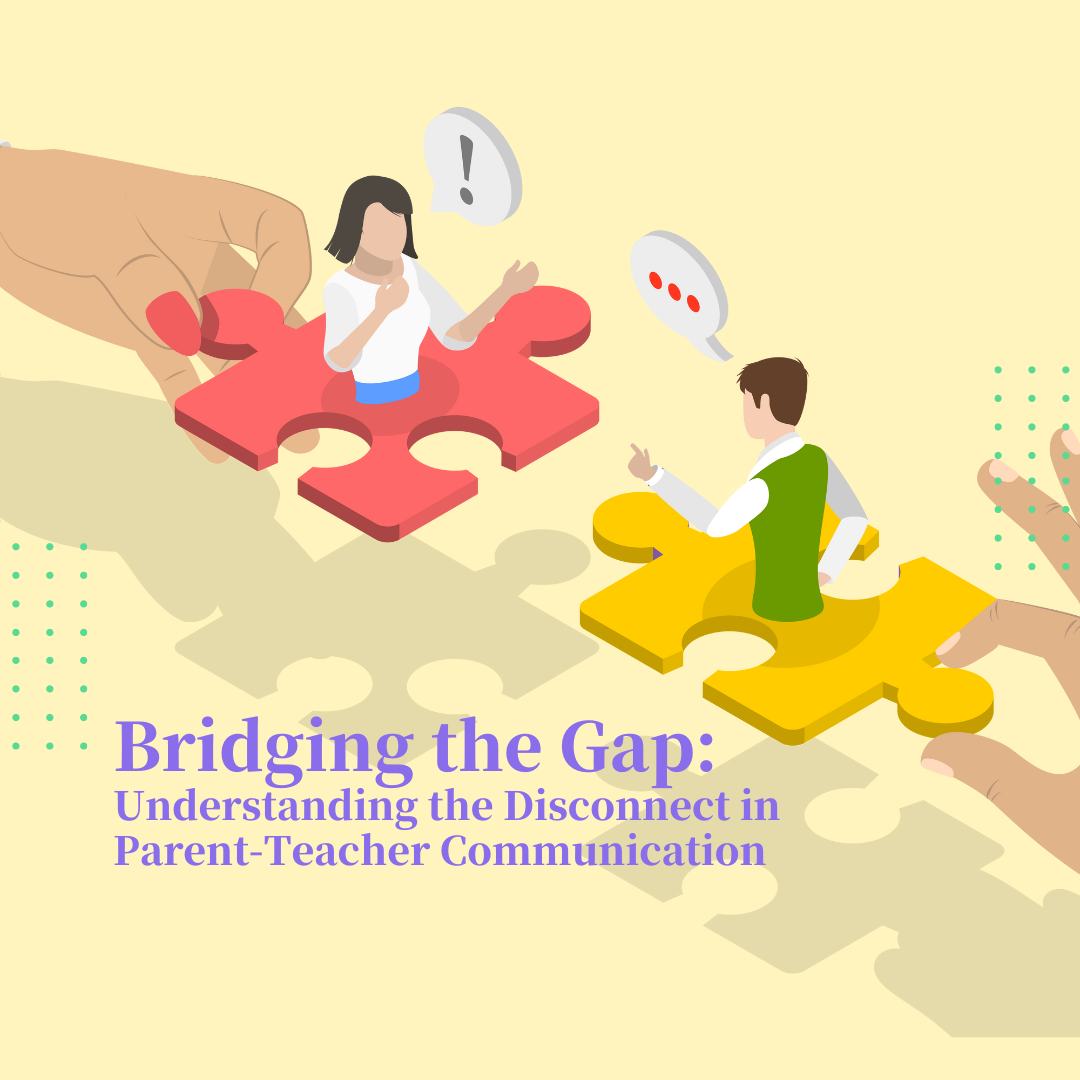Your cart is currently empty!

/

Bridging the Gap: Understanding the Disconnect in Parent-Teacher Communication
By Tanika T. Garrett
There has been a long and tiresome issue about effective communication between parents and teachers and student performance. It has been said that the success of the former significantly affects the latter, and I couldn’t agree more. Yet, despite its significance, this vital link often falls short, leaving both parties feeling frustrated and misunderstood, and the students suffering.
Today, we will be looking into the intricacies of Parent-Teacher Communication, why it falls short, and what we as Educators can do to strengthen this relationship.

The Communication Conundrum: Why Does it Falter?
The first step in addressing any problem is understanding its origins. In the case of parent-teacher communication breakdowns, several factors often come into play. Misaligned expectations, limited time, and differing communication styles can all contribute to the disconnect. Additionally, unresolved conflicts or misunderstandings can further exacerbate the issue, creating barriers to productive dialogue.
In addition to the aforementioned factors, cultural and language differences can also pose significant challenges to effective parent-teacher communication. In increasingly diverse classrooms, educators must navigate a myriad of cultural norms and linguistic nuances to ensure that all families feel welcomed and included. Recognizing and addressing these barriers requires cultural competence and sensitivity, as well as a willingness to engage in open dialogue and mutual understanding. By embracing diversity and actively seeking to bridge cultural and linguistic divides, teachers can cultivate a more inclusive and supportive learning environment for all students and their families.

The Teacher’s Role: Initiating Change
While improving parent-teacher communication requires effort from both sides, teachers play a pivotal role in driving change. By adopting a proactive approach and implementing targeted strategies, educators can bridge the gap and foster more meaningful connections with parents.
Nowadays, technology offers a plethora of tools and platforms that can revolutionize parent-teacher communication. From email updates and online portals to virtual conferences and social media groups, educators have an array of options at their disposal to streamline communication and increase accessibility. By embracing technology, teachers can overcome barriers such as limited time and scheduling conflicts, providing parents with real-time access to important information and resources. Furthermore, digital platforms can facilitate more frequent and transparent communication, allowing for ongoing collaboration and feedback between teachers and parents. By harnessing the power of technology, educators can modernize their approach to communication and enhance their ability to engage with parents in meaningful ways.

Strategies for Success: How Teachers Can Make a Difference
Establish Clear Channels of Communication: Create multiple avenues for parents to reach out, whether through email, phone calls, or face-to-face meetings. Consistency is key, ensuring that parents feel supported and valued.
Set Expectations Early: At the beginning of the school year, outline your preferred methods of communication and establish expectations for parent involvement. This clarity can help prevent misunderstandings down the line.
Be Empathetic and Understanding: Recognize that each parent comes from a unique background with their own set of challenges and concerns. Approach interactions with empathy and understanding, seeking to build trust and rapport.
Provide Regular Updates: Keep parents informed about their child’s progress, both academically and behaviorally. Regular updates, whether through progress reports or informal check-ins, demonstrate your commitment to their child’s success.
Invite Collaboration: Encourage parents to be active participants in their child’s education by soliciting their input and involvement. Collaborative problem-solving can lead to more effective solutions and greater buy-in from all parties involved.

Closing Thoughts
Effective parent-teacher communication is not merely a nicety but a necessity for fostering student achievement and well-being. By understanding the root causes of communication breakdowns and implementing targeted strategies for improvement, educators can pave the way for stronger, more collaborative partnerships with parents. Together, we can bridge the gap and create a supportive environment where every child can thrive.

Leave a Reply